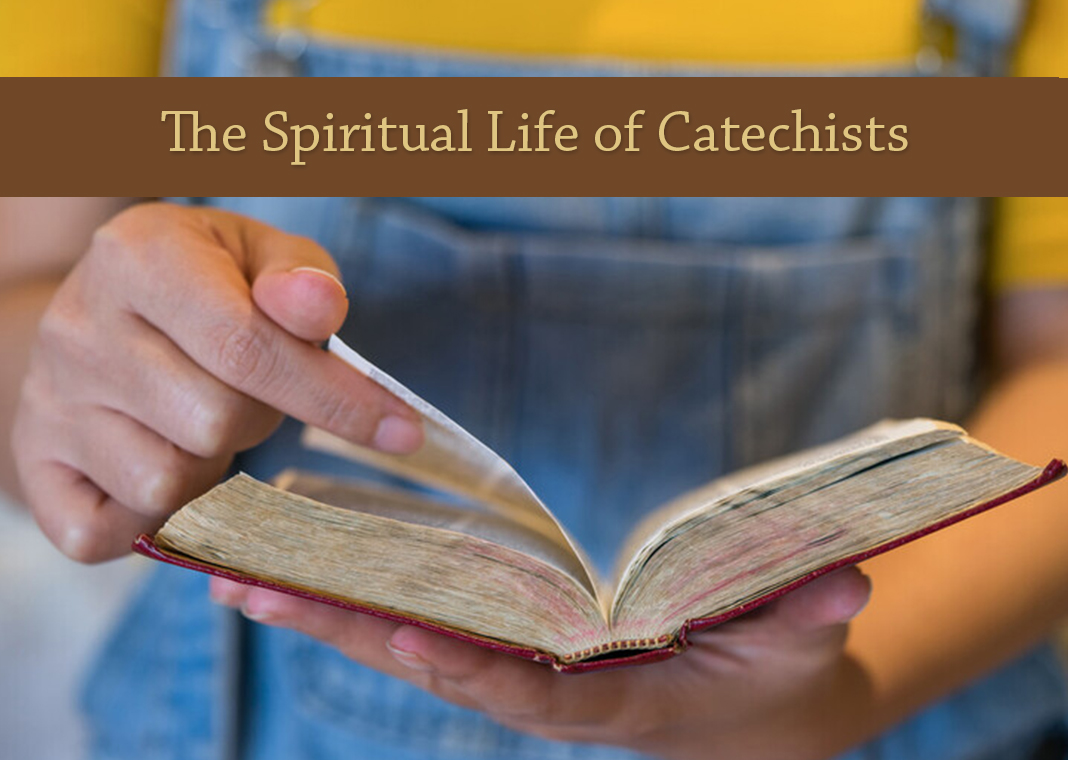
One aspect of a catechetical leader’s responsibilities is discerning whom God is calling to the vocation of catechist and planning refreshment (formation) for those whom God continues to call. A catechist is called to holiness with “a particular urgency” (National Directory for Catechesis, 229), and there are, the NDC tells us, important characteristics of the catechist’s spiritual life.
The first characteristic is a love of God (Trinity), of the Church, the pope, and God’s holy people. A catechist is motivated by love, not just by a desire to be helpful. How can parish leaders recognize and reinforce that love?
Love of Father, Son, and Holy Spirit is only possible within a lived relationship with God, instantly recognizable in the form of joy. As Pope Francis said often, joy is key to proclaiming the Gospel effectively. In Evangelii Gaudium, he calls us to a renewed personal encounter “with God’s love, which blossoms into an enriching friendship,” in which, “we find the source and inspiration of all our efforts at evangelization” (#8).
Love of the Church, the pope, and God’s holy people means now, in the present moment, despite human imperfection. It means loyalty to the institution and identity as a member of the body of Christ, of which the pope is the head. Pope Francis wrote, “Just as Christ gathers to himself all those who believe and makes them his body, so the Christian comes to see himself as a member of this body, in an essential relationship with all other believers” (Lumen Fidei #22).
If this is a person’s true identity, he or she can’t stay away from Sunday Mass or from other opportunities to gather with the community. People will be attracted to such Christians as well, because their joy and faith is simply infectious. These are the catechists who leave a lasting impression through humor, creativity, and genuine care for their students. I once had a catechist who embodied this so well that before class, his students from previous years would often drop in to chat. They often told me they wished they could have him as their catechist again.
Catechetical leaders should recruit and nurture catechists who give evidence of joy-filled relationship to God and to the Body of Christ and reinforce that through opportunities for shared prayer and fellowship. That should not be difficult if the director or coordinator of the program is also a model of love and joy. Nothing is more attractive than a leader grounded in the joy of the Gospel, who sees beyond ministry’s tasks to the heart of the mission.





Welcome, Joyce! It’s so great to have you adding your voice to Catechist’s Journey!
I love your emphasis on JOY as you discuss this first aspect of the spiritual life of catechists which is love of God. Who doesn’t experience joy when falling in love? As catechists, we are called to be in love with God who is in love with us. We can’t help but to exude joy when basking in such a relationship and that joy is what will invite others into relationship with God.
Hi Joe,I have really loved your articles,am going to share with my parish.
Thanks and keep up the great work
You’re welcome, Evelyn! Glad you are finding these helpful to share with your peeps!